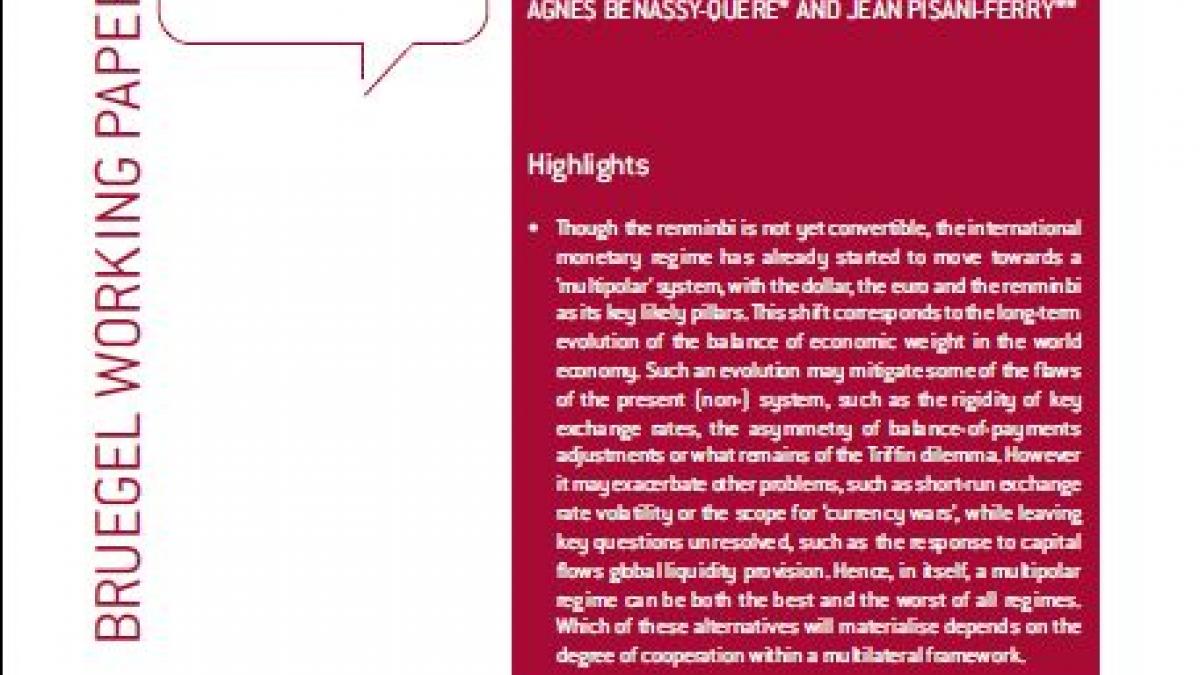What international monetary system for a fast-changing world economy

Though the renminbi is not yet convertible, the international monetary regime has already started to move towards a 'multipolar' system, with the dollar, the euro and the renminbi as its key likely pillars. This shift corresponds to the long-term evolution of the balance of economic weight in the world economy. Such an evolution may mitigate some of the flaws of the present (non-) system, such as the rigidity of key exchange rates, the asymmetry of balance of-payments adjustments or what remains of the Triffin dilemma. However it may exacerbate other problems, such as short-run exchange rate volatility or the scope for ‘currency wars’, while leaving key questions unresolved, such as the response to capital flows global liquidity provision. Hence, in itself, a multipolar regime can be both the best and the worst of all regimes.
Which of these alternatives will materialise depends on the degree of cooperation within a multilateral framework.



